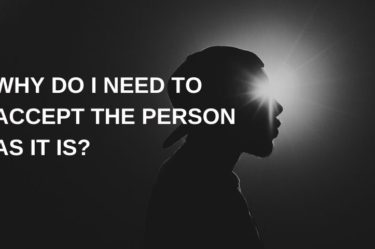What Kind of Trauma is Trauma to You?
We often hear a lot of people speak about the trauma they been through. When we normally hear the word trauma, there is instantly a feeling of ‘Oh my god!’
What just happened?
What has this person been through?
Was it really that bad?
The need to know what went wrong usually gets the better and a lot of probing questions are put forth to understand what happened.
Here what I would like to write about is the different thresholds of trauma and how perceptions play a vital in role for each individual in gauging the likelihood of trauma.
Firstly let’s look at,
What is trauma?
Trauma is a deeply distressing or disturbing experience. Another way to look at it is as a disordered psychic or behavioral state resulting from severe mental or emotional stress or physical injury. Maybe an emotional upheaval. Here what I would like to focus on, is the mental and emotional trauma. This kind of trauma causes huge impact on the state of mind of an individual and at times makes it difficult for the person to express themselves easily. There is a deep fear of being judged or mocked at
A traumatized person can feel a range of emotions both immediately after the event and in life later on. They may feel overwhelmed, helpless, shocked, or have difficulty processing their experiences. Trauma can also cause physical symptoms. Trauma can have long-term effects on the person’s well-being
If one can try to categorize the degree of trauma to an extent.
- Acute trauma results from a single incident.
- Chronic trauma is repeated and prolonged such as domestic violence or abuse.
- Complex trauma is exposure to varied and multiple traumatic events, often of an invasive, interpersonal nature.
Kinds of Traumatic Events
- Natural disasters, such as a cyclones, Tsunami, earthquake, hurricanes, fire, or flood.
- Sexual assault or Rape.
- Physical assault or abuse .
- Witness shooting or stabbing of a person.
- Accidents ( cars, trains, airplanes, bikes)
- Sudden death of a parent or trusted caregiver.
- Hospitalization.
- Bullying
- Early childhood abuse
How does one know if the have trauma?
Some of the common symptoms are recurrent, unwanted distressing memories of the traumatic event. Reliving the traumatic event as if it were happening again (flashbacks) Upsetting dreams or nightmares about the traumatic event. Severe emotional distress or physical reactions to something that reminds you of the traumatic event.
Ways to Heal from Emotional Trauma
- Movement and Exercise. As trauma disrupts your body’s natural equilibrium, exercise and movement can help repair your nervous system.
- Connect with Others.
- Ask for Support. Seek a counselor or a healer to help you work on the trauma. Some trauma can be deep rooted.
- Volunteer to be part of support groups.
How trauma changes your personality?
Living with traumatic stress can make you highly reactive, constantly stressed, incredibly anxious, impulsive, and irrational at times. All of these changes are symptoms that occur because of the way traumatic stress affects the brain. Experiencing traumatic events can change the trajectory of our lives.
Trauma is also an experience that has been painful. Instead of ignoring it, see on how to heal it.
Trauma is not something to be in denial of, it’s okay to work on it and get it healed.
Trauma is not a social stigma, it’s okay to work land release it.
Get in touch with Samskara Healing, if you are looking for a mentor or you need a session of healing and help remove blocks feel free to reach out and book a consultation.
✍️ Written by
Dr. Jayapalashri Anil
In Gratitude to Divine
The Spiritual Princess, Healer & Blogger
Shamanism, Reiki Grandmaster
Samskara Healing




